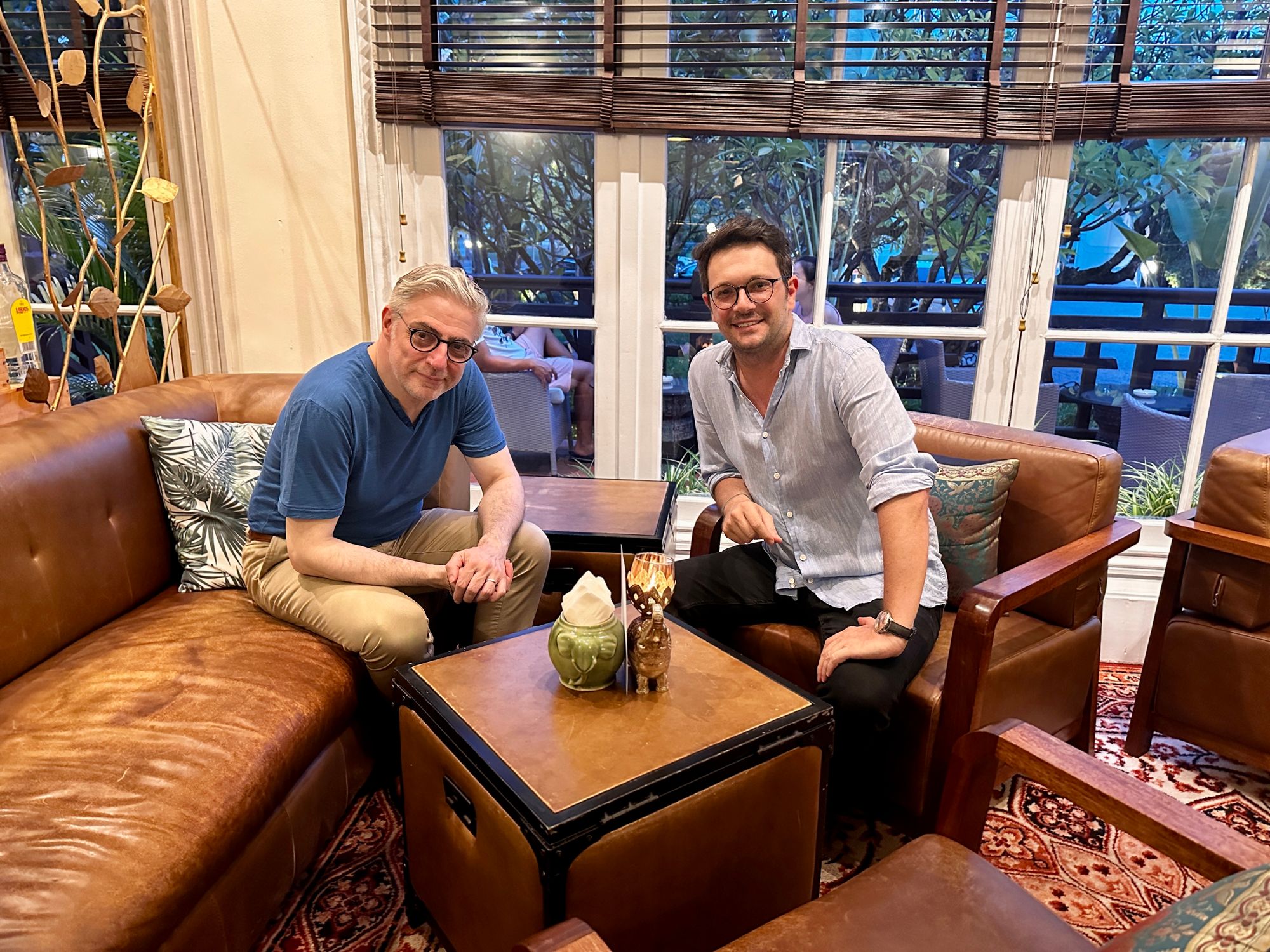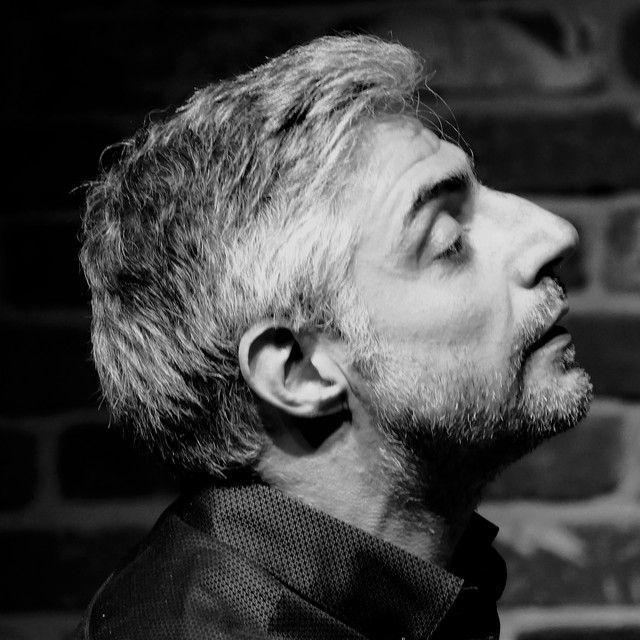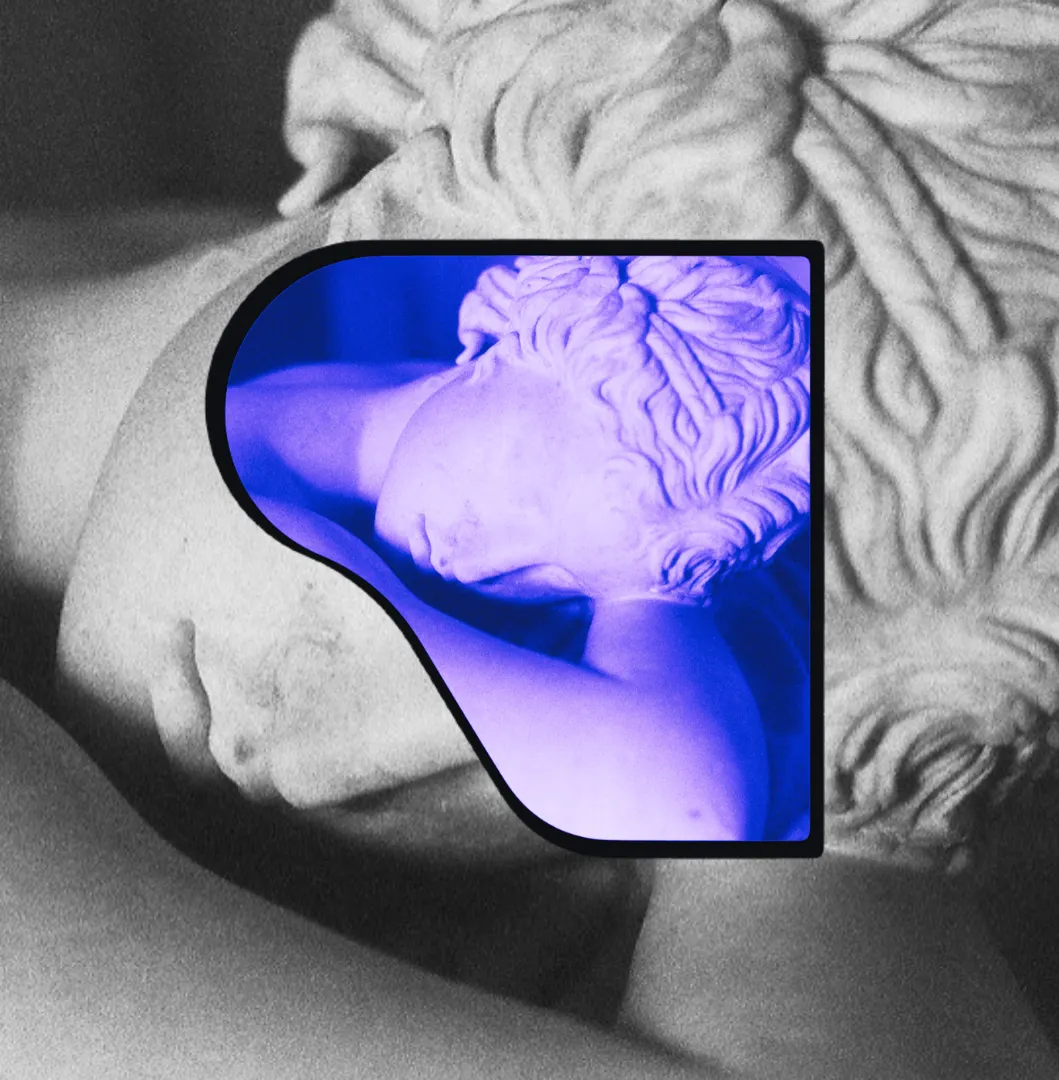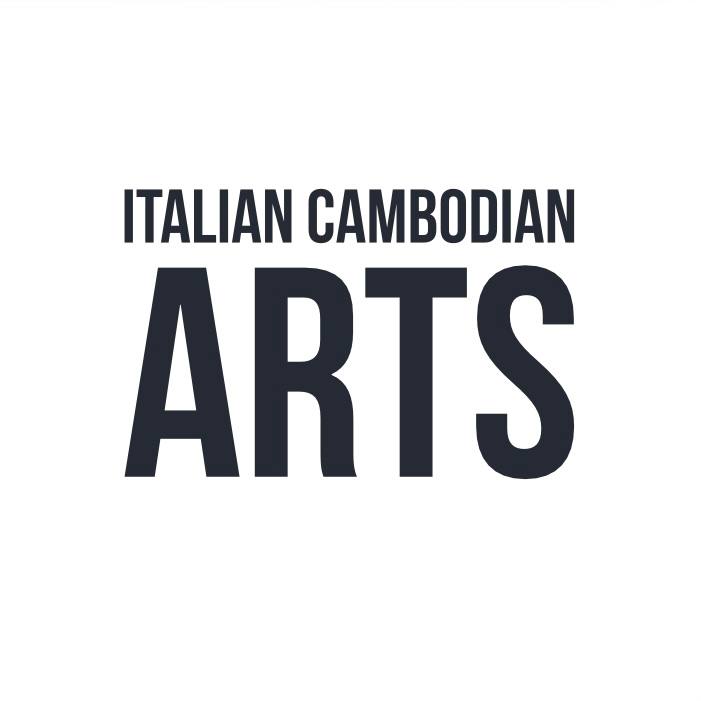Jazz star Giovanni Mirabassi visits Cambodia

Gabriele Faja meets with Giovanni Mirabassi, one of Italy's most influential jazz musicians. Over a bottle of San Pellegrino at Raffles le Royal in Phnom, the two discuss Music, Cuba, being Italian and whos' the greatest jazz pianist today.
Italian pianist and composer Giovanni Mirabassi was part of a generation of Italian jazz musicians who moved to Paris in the 90s. In 2001, he achieved great success with his solo album, "Avanti!" which explored the melancholy of freedom and composed songs from different countries. Mirabassi was impregnated with the harmonies of Enrico Pieranunzi, the phrasing of Bill Evans, and the rhythmic fury of Mingus. He met other Italian musicians in Paris, including Paolo Fresu, Flavio Boltro, and Stefano di Battista, and became a protege of Aldo Ciccolini. Instead of pursuing commercial jazz, he followed a more personal path committed to his political ideas. His key drivers were autonomy and sharing, and the people he met guided him artistically. He composed music for movies and his passion for voice and songs can be heard in his solo piano albums and his piano/voice CDs. He is always in search of freedom and insolence, but at the same time, he remains faithful to the tradition of inventive jazz and a spirit of protest.

Which is your favorite destination in Asia for Jazz?
Japan has a special place in my heart as it holds a deep-rooted passion for jazz. Tokyo's jazz scene dates back to the 1920s, and the city boasts a lively jazz culture with numerous clubs, festivals, and events held throughout the year. Some of the most notable jazz clubs in Tokyo include Blue Note Tokyo, Cotton Club, and Jazz Club Birdland. The tradition of sipping coffee while listening to jazz LP records originated in Tokyo and continues to be enjoyed to this day.
My own career had a significant breakthrough in Japan, thanks to a chance encounter with a Japanese man who heard my music on the radio and approached the producer to buy 250 copies of my first record with my trio, "Architectures," in 1998. The demand for the record quickly grew, resulting in the sale of 5,000 copies and more to follow, propelling my career in Japan.
Five years later, in 2003, I embarked on my first tour in Japan, which commenced at the Namba Hatch theater in Osaka, where 800 people attended the concert. They were already familiar with my music, thanks to the success of my albums. Since then, my popularity in Japan has only continued to soar.
During one of my trips to Japan, I went to a cinema and heard a composition by Joe Hisaishi from the film "Howl's Moving Castle". When I missed a piece on a setlist during one of my performances, I used the theme to create a trio version, which became a top 3 hit in Japan. This helped to further expand my popularity in Asia, including in Hong Kong and other destinations.
Do you feel more Italian or French?
As an Italian who has lived in France for over 30 years, I can't help but feel as both! While Paris has certainly played a role in my international career, along with other Italian jazz musicians such as Stefano di Battista, Paolo Fresu, and Rosario Giuliani, there is also something special about Italian jazz that is recognized worldwide. I have had the honor of influencing two generations of artists, particularly in Asia where my music has gained popularity. Being Italian and living in France is the best of both worlds! (laughs)
Interestingly, some of the greatest jazz musicians living in Italy are not the ones who travel internationally as much. For instance, Stefano Bollani has become a household name in Italy through television, but when he travels abroad, he is just a jazz pianist. Though popularity is nice to have, jazz is not a career that often leads to great wealth. While it is rich and fulfilling, it is important to supplement our income with record sales and other activities.
How does Cambodia develop a Jazz scene?
To develop jazz in Cambodia, there needs to be a listening culture for jazz, which can be fostered through clubs and schools. Developing a jazz teaching faculty is also necessary for jazz to be recognized as an art form like any Western art, and this will eventually lead to the creation of students and artists. Inviting international jazz professors to Cambodia can accelerate this process. For example, many jazz musicians travel around Asia, and universities or music conservatories can open a jazz faculty and invite these names to initiate the process.
To become a great jazz musician, you need time and dedication. It can take years to appreciate jazz fully. But some of the best jazz musicians are American. Jazz is seen as an art form from the US, which helps American artists to be taken seriously and express themselves creatively.
To learn jazz, you need to start with the basics. This means learning the classic songs of the American Songbook, just like learning classical music requires mastering Mozart, Beethoven, Chopin, and Brahms. Steven Gargadennec has been bringing jazz to Cambodia with Klapyahandz, which helps jazz to reach more people, even if the concerts are not held in jazz clubs.
Jazz requires creativity, which can help expand horizons in the arts. The Italian Arts Committee is helping to create a foundation for creative arts in Cambodia. I would love to come to Cambodia and teach a master class to young musicians and give back, just like I was helped when I started jazz in France.
What advice would you give an aspiring Cambodian jazz pianist?
Becoming a professional jazz musician takes dedication and hard work. To achieve this, one of the most valuable steps is to listen to jazz records from the earliest available, transcribe them, and play along until you fully understand the language of jazz. Jazz is like a language that requires passion and hard work to master, much like French. If you aspire to a career in jazz, traveling to Japan, which is relatively closer, to observe how jazz is played at its highest level is a good start. However, eventually, you will need to travel to the United States and experience the great jazz clubs firsthand.
For me, my journey to becoming a jazz pianist began by purchasing records with my brother, using our pocket money. We would spend a week listening to a particular record and absorbing its nuances. This passion and dedication eventually led me down the path of becoming a professional jazz musician. One of the most challenging aspects of jazz is improvisation, which requires a quick recall of ideas and constant creativity, akin to speaking in rhyme every day (laughs).
Who’s the biggest name in Jazz piano today in your opinion?
There are a lot of great pianists out there, but one of the best is Brad Mehldau. He's really influential and has become a legend in the jazz world, like Herbie Hancock and Keith Jarrett before him. I got to see him play live in Tokyo with Mark Juliana and it was amazing! His style is so unique and it felt like I was transported to another world. There are other great pianists too, like Gerald Clayton, Sullivan Fortner, and Fred Hersch.
Fred is wonderfully talented in playing polyphonic lines and especially apt for the music of Monk. He even taught Brad Mehldau once. I've played concerts with Fred and he's a good friend of mine. He's had a huge impact on the jazz world, even though he's not always in the spotlight. He's been one of the most important names in jazz for the past 30 years.

What can we expect from you in the next few years?
Throughout my career, I've been fortunate enough to love what I do. While I've played many French songs and recorded numerous albums, my primary passion lies in being a concert pianist. I travel the world, simply playing the piano and bringing my music to audiences everywhere. I'm so committed to sharing my music that I even travel to places like Cambodia, which may not be on the jazz map worldwide.
My future will be divided between my playing, recording, and managing my own Jazz label, Jazzeleven. Its purpose is to enable other musicians to bring their musical concepts to me, and my job is to realize those concepts and make them a viable proposition for the public. As a musician myself, I understand the importance of collaborating with producers who also have a strong musical background. With my colleague Sarah Lancman I have already recorded four albums together, and I'm excited to be returning to France soon to record with Chucho Valdez.
In the past, I've had the pleasure of working with many talented Cuban musicians, even writing some music for them. I once traveled to Havana to record a disc based on Italian opera, as I was unhappy with the political situation in France at the time. I was blown away by the incredible talent of the Cuban musicians I worked with, and even the smallest cafes had amazing musicians playing.
Starting my own label was a natural progression for me, and I officially launched Jazzeleven after my previous contract with another label ended in 2015. It's a challenging task managing all aspects of production, but it's also incredibly rewarding to work with so many talented artists. We try to feature a mix of older and newer generations of musicians, as I believe it's important to keep evolving and pushing the boundaries of what is possible in jazz.


